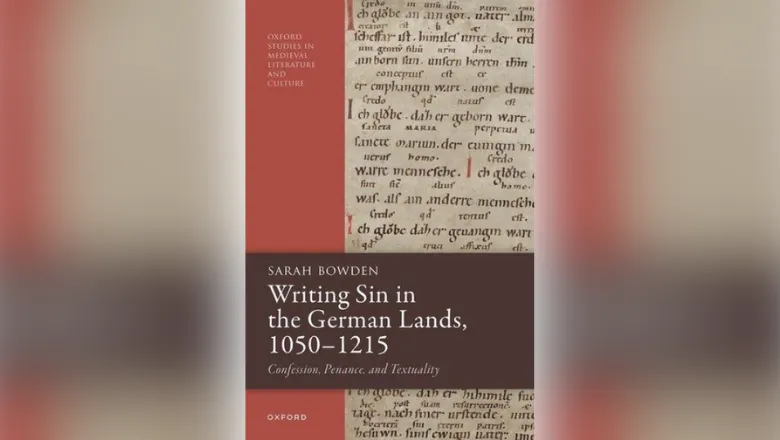In Writing Sin in the German Lands 1050-1215: Confession, Penance and Textuality published by Oxford University Press, Dr Bowden examines how sin and atonement acted as an incentive for textual production and for formal, linguistic and intellectual creativity in the 11th and 12th century in Germany. During this period, the convergence of certain social and cultural conditions led to increased interest both in sin and in opportunities for writing about it experimentally.
Dr Bowden’s research offers a new approach to German-language devotional writing, bringing together the history of penance, literary history and manuscript studies – including texts that have received little scholarly attention.
The research offers new angles on questions occupying Middle Age scholars by connecting the history of penance and devotional writing in the European vernaculars. Topics enlightened by new perspectives include the medieval conception of the self in relation to other and to God, the value and function of vernacular writing, the nature of textuality and the relationship between writing, speech, material text, and performance.
Not only does the book clarify aspects of medieval penitential thought and practice, it also highlights new ways of thinking about how German has developed as a literary language. This focus on penitential theology and practice in 11th and 12th century Germany coincides with the beginning of consistent textual production in the German language, with texts being written down in a consistent and vaguely systematic way.
Initial research for this book took place in 2018 when Dr Bowden spent a year in Berlin with an Alexander von Humboldt Foundation Fellowship for Experienced Researchers.



